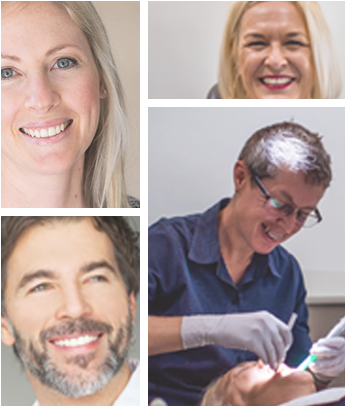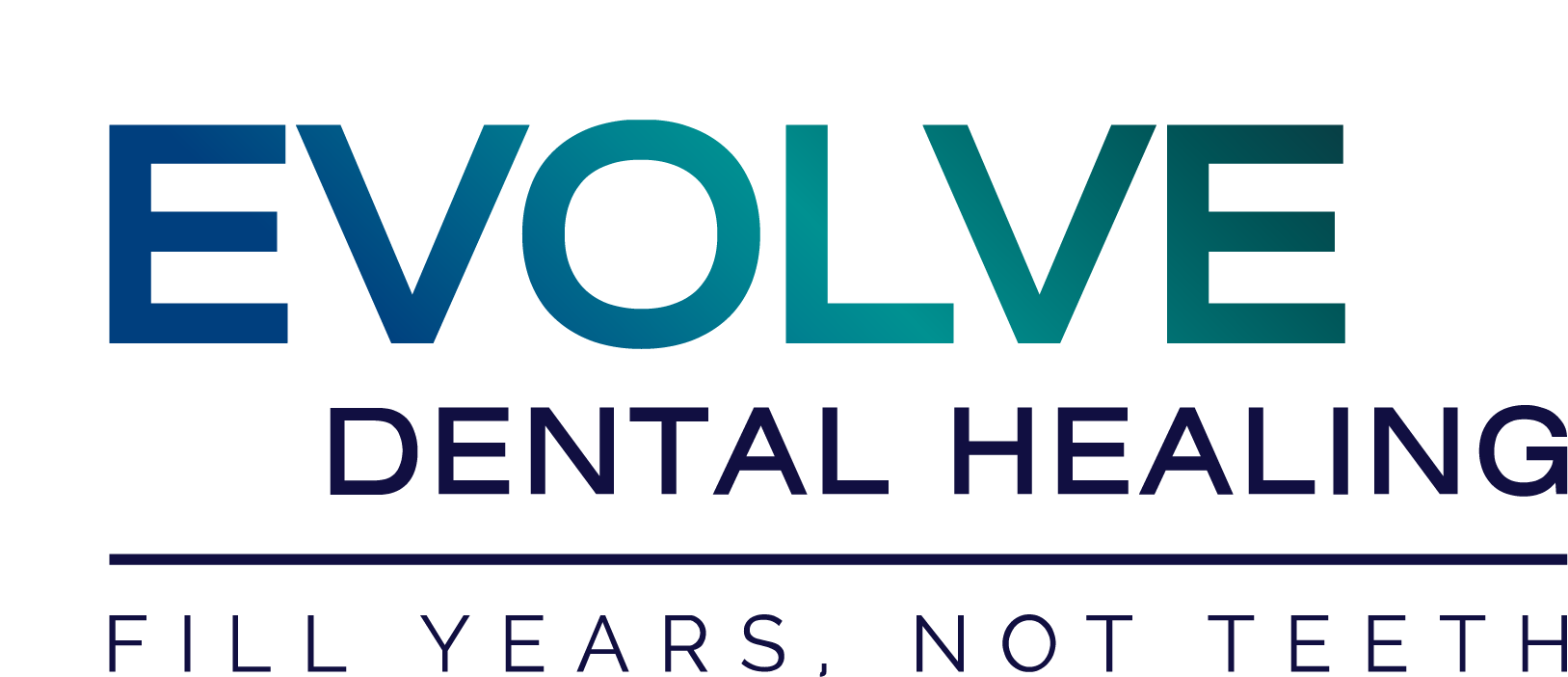TMJ and Headaches DenTist Kenmore
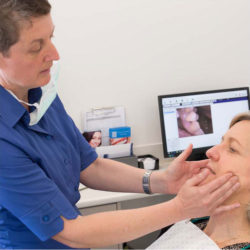
Most TMJ problems are caused by grinding and clenching of the teeth particularly when we sleep.
Other symptoms of TMJ problems can be ringing in the ears, loose teeth, receding gums, worn chipped or cracked teeth and fillings, pain and sensitivity in the teeth, crowded teeth, difficulty opening the mouth, loss of chewing efficiency and even difficulty swallowing.
There are many causative factors, which often happen in combination as a problem of the joint and stress on its surrounding structures. These factors can be catergorised under two major headings as structural factors and emotional factors; and include things such as injury to the joint, arthritis, poor posture, stress and clenching and grinding the teeth.
Onset of TMJ problems can be quite gradual for some and sudden for others but fortunately there are several ways in which to ease or treat the condition.
At Evolve Dental Healing Dentist Kenmore, we look at the bite, jaw relationship, muscle alignment and function, lifestyle, stress levels and possible mineral deficiencies that may be causing or adding to your issues.
The objective of our treatment is to address all possible causes and factors involved in your particular problem so we employ a multi-faceted approach which involves body work, dental corrections to align the occlusion (bite), minerals and anti-inflammatory medications, addressing lifestyle factors and providing an orthotic mouth splint if appropriate.
The aim is to reduce the damaging effects of night grinding and clenching on the muscles of the head, neck and jaws, to support the jaw in a more balanced position, eliminate chronic pain and aid in more restful and regenerative sleep whilst at the same time helping improve your energy levels and general health.
CALL TO BOOK YOUR CONSULTATION TODAY 07 3720 1811
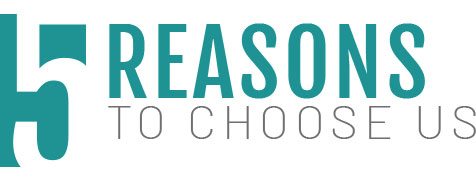

Dr Rachel Hall

Find Out Why Our Patients Are Smiling
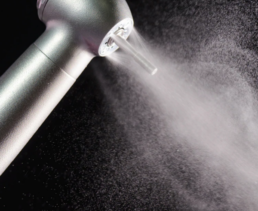
Get involved with a fully personalised approach to your dental care.

Free onsite parking in peaceful tree lined suburban location.

Finance that works for you.
Claim your health fund on the spot.
Easy finance plan application.
In association with the world expert on TMJ & Sleep Therapy, Dr Steve Olmos, Dr Rachel Hall uses an established practice for the diagnosis and/or treatment of the following disorders:
- Temporomandibular Disorders (TMJ/TMD)
- Craniofacial Pain
- Headaches and migraines
- Sleep Disordered Breathing (SDB)
- Obstructive Sleep Apnea (OSA)
- Sleep Bruxism (teeth grinding and clenching)
- Snoring
Should you or your family members be experiencing or suffering from any of the above complaints, please contact us to discover how we can assist you to BREATHE, SLEEP, HEAL and LIVE.
Frequent headaches? Uncomfortable bite? Neck/Shoulder/Back/Face pain? Jaw locking when jaw is opened or closed? These are all symptoms of TMJ Disorder.
“TMJ” is an acronym for temporomandibular joint, that is to say, the jaw joint. The temporomandibular joints are the joints in front of the ears attaching the lower jaw to the skull. They are essential to daily jaw functions such as opening and closing your mouth, chewing, breathing, swallowing and speaking.
TMJ disorders refer to conditions, manifested by pain in the area of the jaw and jaw muscles and limitations in the ability of the jaw to operate normally while speaking, eating, and swallowing.
The National Institute of Dental and Craniofacial Research of the National Institutes of Health states that 10.8 million people in the USA suffer from TMJ problems. 90% of those seeking treatment for TMJ are women during their childbearing years.
Medical research has not yet defined all the causes of the various TMJ disorders. Some patients report having TMJ symptoms following trauma, dental treatment, traffic accidents, or following the adoption of habits such as clenching or grinding the teeth. Arthritis in other parts of the body is sometimes linked to TMJ pain.
Symptoms of TMJ Disorder
- Frequent headaches
- Uncomfortable bite
- Neck/shoulder/back pain
- Facial swelling
- Pain of the face
- Pain of the jaw joint and/or the ear
- Jaw locking when jaw open or closed
- Restricted ability or complete inability to open the mouth without pain
At present, there are many treatment options in use ranging from very conservative, reversible therapies to more aggressive, invasive approaches.
At Evolve Dental we always aim to treat TMJ conditions in the most conservative and non-invasive ways so will always start by addressing underlying reasons for TMJ issues like misaligned bite, mineral deficiencies, lifestyle factors, posture and breathing issues, we will provide a simple nightguard to alleviate symptoms and then look toward dental orthotics or orthodontic correction. We also work with specialised physiotherapists, podiatrists and body workers to correct postural and muscular problems throughout the body.
Signs and symptoms of TMJ disorder vary and can be very complex to identify. Often the symptoms will involve more than one of the numerous TMJ components: muscles, nerves, tendons, ligaments, bones & connective tissue.
People with TMJ problems generally experience one or more of the following symptoms:
- Chronic recurring headaches
- Clicking, popping or grating sound in the jaw joints
- Earaches, congestion or ringing ears
- Limited jaw opening or locking
- Dizziness
- Pain when chewing
- Neck and/or throat pain
- Difficulty in closing the teeth together
- Tired, tight jaws
- Pain behind the eyes
- Scalp tenderness
- Swallowing difficulty
- Pain in the tongue, gums or cheek muscles
- Teeth grinding or clenching
A displaced disk may produce clicking or popping sounds, limit jaw. The disk can also develop a hole or perforation, which can produce a grating sound with joint movement cause pain when opening and closing the mouth.
Jaw, face and/or neck pain are common indicators of acute or chronic inflammation of the TMJ. This can cause significant pain around the TM joint itself but the discomfort can also spread and surface in places outside the TMJ area.
Finding the right dentist to identify the root cause of the pain can be difficult as the TMJ overlaps the boundaries between several health-care disciplines. It is important to find a dentist who also has advanced education and training in these conditions such as Dr Rachel Hall.
Contact us to make an appointment and get your TMJ symptoms assessed today.
If any of the following symptoms affect your daily life or you are taking regular pain medication or sleeping aids, you may be suffering from tmd and should be evaluated by a dentist trained in diagnosing and treating these disorders.
- Headaches – recurring or chronic
- Earache or ear symptoms of stuffiness or ringing
- Neck pain or stiffness
- Facial pain
- Jaw joint sounds – clicking, popping or grating
- Limited ability to open or close mouth
- Jaw locking (opened or closed)
- Sensitive, loose or worn down teeth
- Pain or soreness in the TM joints
- Dizziness or Pain or difficulty chewing or swallowing
- Pain behind the eyes
- Extreme sensitivity to light
If you answered yes to any of these symptoms you could have an issue with your TMJ. Our highly qualified team are here to help so call us today to have your TMJ assessed.
What is TMJ? Often people will complain that they have TMJ – which of course they do, in fact they have two, as TMJ is the abbreviation for the jaw joint. What people actually mean is they have TMJ disorder where they have pain often in the face, neck, head or teeth associated with teeth clenching or grinding. TMJ disorder (TMD) or TMJ syndrome is a group of symptoms and conditions. TMD is actually a sleep movement disorder caused by chronic inflammatory damage of the joint itself or in association with sleep disordered breathing like snoring and sleep apnoea.
Traditionally dentists have been and still are trained that TMD is caused by stress or is a bad habit! Which is not actually the case. Stress compounds and adds to an already underlying condition and why we would develop a habit that hurts our body and damages our teeth – well that’s simply ridiculous.
The temporomandibular joint (TMJ) is formed by the mandible (lower jaw bone) joining with the temporal bone of the skull, just below and in front of the ear. You have a TMJ on each side of your face. Each joint has a cartilage disc inside keeping the temporal bones and the mandible bone apart to prevent the bone surfaces from wearing and damaging each other, as well as to act as shock absorber for the joint. The jaw joint is surrounded by a capsule or envelope enclosing it.
The TMJ is opened and closed thousands of times each day as we swallow, eat, speak, breath, and yawn, and as such is a focal point of a lot of muscle activity and physical forces.
The TMJs contain the highest volume of proprioceptive nerve fibres in the body. These nerve fibres are responsible for relaying information to the brain telling us where our body is time and space. The TMJ is very important in maintaining our balance and upright posture and if our TMJ is damaged in any way the body has to compensate by holding itself differently to keep that postural balance. This change is position is called compensation and can lead to pain elsewhere in the body – pain that often gets treated but not resolved as it is not the primary source of the problem. The opposite can occur too where a person could have chronic inflammation in a hip for example and due to the body compensating to keep postural balance and avoid pain it is the jaw that starts to hurt. The jaw gets dental treatment but without success (and sometimes making it worse) as the hip is never detected as being the primary issue.
The key to treating TMJ disorders properly and successfully lies in the ability to diagnose whether the jaw joints are the primary cause or not and this is why a holistic approach is so essential.
- Headaches
- Ringing in ears
- Jaw pain
- Back pain
- Face pain
- Ear pain/stuffiness
- Neck ache
- Dizziness
- Ringing in the ears
- Difficulty chewing
- Clenching/grinding
- Fatigue
- Shoulder pain
- Worn teeth
- Chipped and broken teeth
- Painful teeth
- Failed dental work
The TMJ is connected to the body particularly the neck and spine, which are responsible for supporting the weight of your head. Any problems or discomfort in the TMJs can cause structural imbalances or health problems in another part of the body.
It’s like having a twisted ankle – when you walk you naturally adjust your stride to avoid making the ankle worse. In doing so, you place more stress upon the ankle, knee, and hip of the other leg because your body weight is unevenly distributed. Your body has to twist and turn and muscles have to work harder to support this uneven spread of weight. This causes your spine to twist and kink and your hips and shoulders to be unevenly positioned. Muscles go into spasm and become painful and can even impinge nerves. This causes discomfort to travel up your spine and before you know it you have a pain in your neck and jaw– all from a twisted ankle.
You can imagine if that was to go on long term and your ankle never got fixed you would start to develop some serious structural and chronic pain issues.
Just like the twisted ankle, a problem in your TMJ can cause multiple, seemingly unrelated problems. While some symptoms can be easily traced back to the jaw joint – such as difficultly or pain in biting and chewing, clicks and grating noises from your jaw, or pain in your jaw or face – other symptoms, like neck, back, knee, and shoulder pain, sinus pain, pain behind the eye, or ringing in the ears, may make it less obvious that the TMJ is the root cause of the problem.
And this is where our unique system of diagnostic tests and neurological evaluations can help us determine the exact origin of your condition so you get the right treatment and optimal care.
If you suspect that you have problem with your TMJ, or you have many health concerns that are difficult to find the cause of, please contact us for an appointment and a case evaluation.
- Trauma to the TMJ from a sporting injury, car accident or other physical incident
- Ongoing trauma from a misaligned bite from lack of functional nose breathing or sleep disordered breathing
- Uneven teeth, mis-positioning of jaw, or loss of bite height
- Daytime clenching of the jaw
- Nighttime clenching or grinding of teeth while asleep (bruxism)
- Sleep apnoea, snoring, airway collapse and disordered breathing during sleep
- Referred compensatory pain from other areas of the body, e.g. neck, feet, shoulders
At Evolve Dental Healing, we have a holistic approach to treating TMJ disorders and pain. Dr Rachel Hall has extensively trained in TMJ disorders, sleep and headaches and is able to screen you and neurologically evaluate your condition to detect the source of your problem. We work very closely with allied health practitioners as well as sleep physicians and ENT specialists to provide an effective, lasting solution to your health care problems.
The first step is a comprehensive evaluation and diagnostic studies to see if your symptoms are truly a jaw problem or if they are coming from another part of the body to ensure we have the correct diagnosis.
If you truly have TMJ dysfunction Dr Rachel Hall will provide you with a course of treatment including jaw orthotics that place your jaw in a healing position and lifestyle recommendations to reduce and address systemic inflammation which help to improve your rate of recovery and healing so you see results faster.
We can also make orthotics that treat sleep apnoea, snoring and sleep breathing disorders.
At Evolve Dental Healing our emphasis is non-surgical treatment to reduce inflammation of the TMJs and to place the jaw in a position of ease so as to reduce stress on the TMJs to allow the body to repair and heal itself.
To find out and treat the cause of your TMJ and improve your health today, call us to make an appointment on 07 3720 1811.
What’s that pain you’ve been having in your teeth, your jaw, your ear, your face, and your head? It very likely might be due to Bruxism – grinding/clenching your teeth repeatedly in your sleep when you are not aware of it. At Evolve Dental we can address this problem and resolve the discomfort and pain it causes you.
At Evolve we are trained in treating bruxism, clenching, grinding and the resulting symptoms.
Bruxism is the act of consciously or unconsciously clenching or grinding your teeth either during the day or while you sleep.
Bruxism is considered both a medical and a dental problem. This is because it affects both the teeth and all of the structures near it, including the neck, face and head as well as your breathing and posture.
People grind their teeth for a variety of reasons. Doctors believe that it is because of stress. Dentists say that it happens because your teeth or jaws are not properly aligned with each other. Whatever the cause treatment should not be delayed.
Teeth grinding may not seem to be a major health issue but can lead to problems such as broken, chipped or worn teeth; receding gums, broken and failed dental work; headaches and migraines; ear ringing; sore jaw joints (TMJ); dizziness; and sore head, neck and shoulder muscles.
Indications of Bruxism
- Intense clenching of teeth, sometimes forceful enough to wake you up
- Flattened, worn down, and chipped teeth
- Worn tooth enamel
- Sensitive teeth (jolts of pain from cold or hot foods and beverages or bristles of a toothbrush)
- Receding gums
- Advancing gum disease
- Loose teeth
- Pain and tightness in the jaws and surrounding muscles
- Ear aches and/or ear ringing
- Headaches and/or migraines
- Sore jaw joints
- Muscle pain in face, neck or shoulders
You will be fitted with a custom mouth guards or splint to prevent you from grinding and clenching your teeth. Night mouth guards are bite pads that are worn at night as you sleep. These guards are made of high-grade plastic and should fit the teeth or mouth perfectly. This device keeps the upper teeth from grinding with the lower teeth, offering an instant solution to teeth clenching problems.
In conjunction with this we will also work with a highly qualified team of specialised head, neck and jaw physiotherapists and body workers plus recommend supplements, exercise and lifestyle changes to help remediate the condition. In some cases we will need to help correct misalignments in your bite with dental treatments an/or adult orthodontics and mouth orthotics.
Very often that persistent migraine headache is related to TMJ and teeth grinding issues which can be alleviated by a specialised mouth guard that you wear at night while you sleep. At Evolve Dental we can determine if this simple solution is the right one for you.
Nutritional and Environmental
Medicine Migraine & Headache Prevention: The NTI Tension Suppression System
The NTI device is the only FDA approved drug-free, surgery-free method of migraine prevention.
In clinical trials reviewed by the FDA, 82% of medically diagnosed migraine sufferers had a 77% average reduction of migraine pain attacks within the first eight weeks of use.
The N.T.I. Tension Suppression System is a prefabricated plastic nightguard that a dental practitioner retro-fits to the patient’s teeth. It is completely different from any other type of mouthpiece as it fits over just the two upper front teeth and is quick and simple to make which means it is an affordable treatment option for migraine sufferers.
Our Practice
CONTACT US
67 Kenmore Road
Kenmore Queensland 4069
Phone: 07 3720 1811
Fax: 07 3720 1899
Email: info@evolvedental.com.au
OPENING HOURS
Monday – Friday: 7:30am – 5:30pm
References and Citations Mercury & Amalgam Fillings
